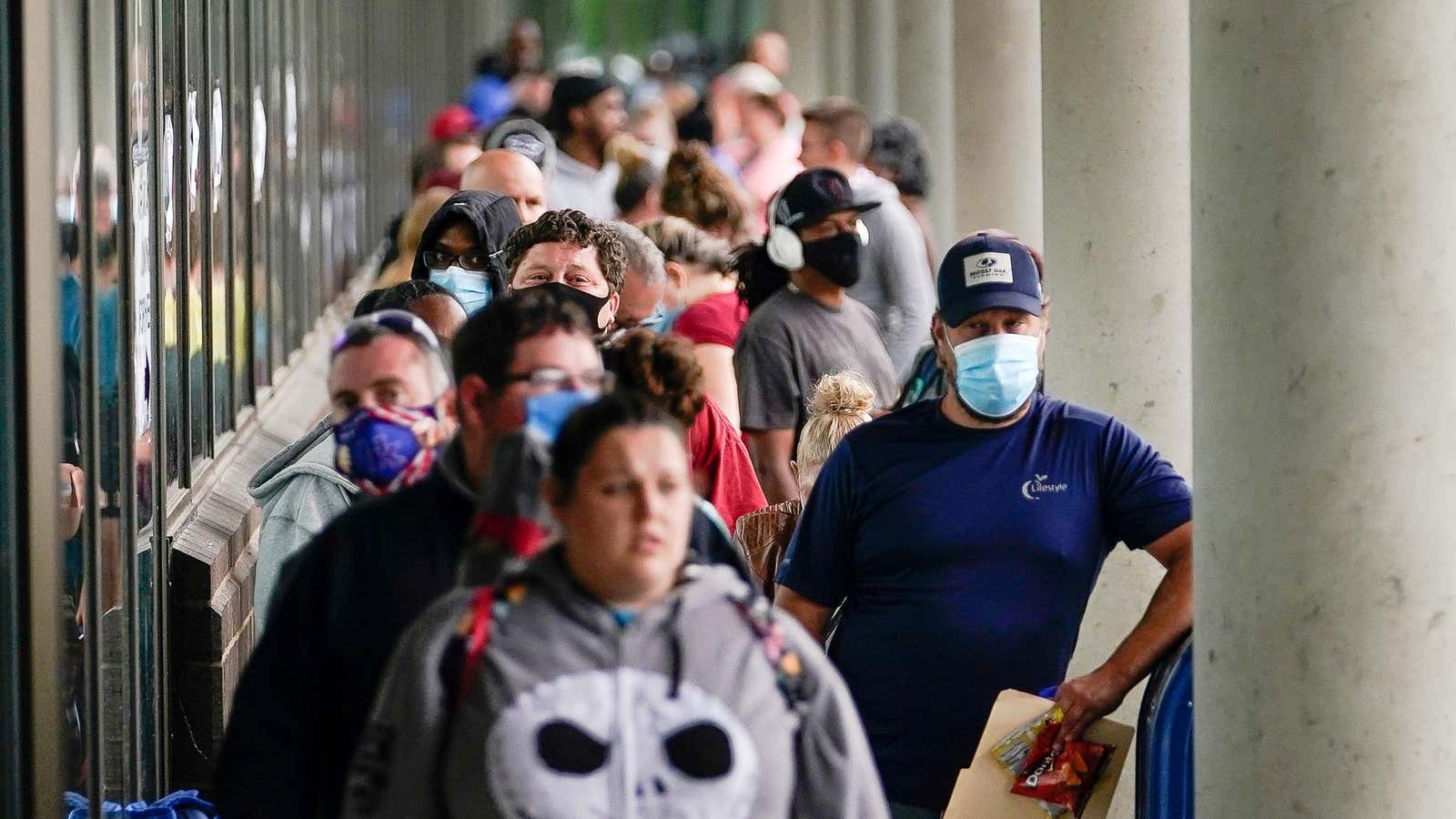US government aid has shielded tens of millions of unemployed Americans from the worst effects of the pandemic-induced recession. But a wide range of data shows that the economic turmoil is far from over and that many people have slipped through the safety net.
Beefed-up unemployment benefits are a key plank of America’s response to the crisis, providing an extra $600 a week to workers who qualify. That program, which has provided a lifeline for many to continue paying rent and keep food on the table, will expire at the end of the month unless Congress and the White House agree on a way to extend it. The debate in Washington over continuing the support comes as the US recovery is likely to be battered by renewed business restrictions in states that failed to contain the coronavirus before reopening their economies.
A temporary drop in American poverty has been, relatively speaking, a bright spot during the crisis. The US poverty rate fell about 2 percentage points to 8.6% in April and May from the beginning of the year, according to estimates from academics at the University of Chicago and Notre Dame. This decline was the result of one-time stimulus checks ($1,200 for some individuals and $2,400 for married couples). Unemployment benefits that are temporarily more generous, and a widening of eligibility for that support, has also reduced poverty, according to research from Columbia University.
But it won’t necessarily last. The stimulus checks were a one-time boost, and beefed up unemployment is fading away at the end of July, “leaving many families with small amounts of income in subsequent months,” according to researchers at Columbia’s Center on Poverty and Social Policy.
Congress is at odds over how, and whether, to extend the support. Almost 70% of people who are eligible for unemployment benefits stand to get more money than they did when they were working, according to a separate University of Chicago study. Some lawmakers are concerned that the support, as structured, will be a disincentive for jobless people to seek out employment again. At the same time, a failure to extend some sort of aid for people who have lost their jobs could push more people into poverty while further damaging the economic recovery.
“We have to find a compromise, because we must extend it,” House speaker Nancy Pelosi said on CNN’s “State of the Union” yesterday.
Expanded unemployment benefits, however, have not been a panacea for the poor. More than 10% of US households report that they sometimes, or often, don’t have enough to eat, according to Census Bureau surveys. Black households have been especially hard hit, with nearly 20% responding that they can’t always afford enough food.
For many people, unemployment support comes with a long lag, which can mean several months of joblessness without income. That can make it hard for a family to keep its access to housing or afford enough food. Many who were eligible for the emergency stimulus checks didn’t get one because their families claimed them as a dependent for tax purposes, according to Columbia University’s research, or because they are immigrants (including some who have become US citizens). Undocumented workers are excluded from the government’s expanded unemployment support, and some people who have lost their jobs weren’t earning enough money to qualify for the benefits.
